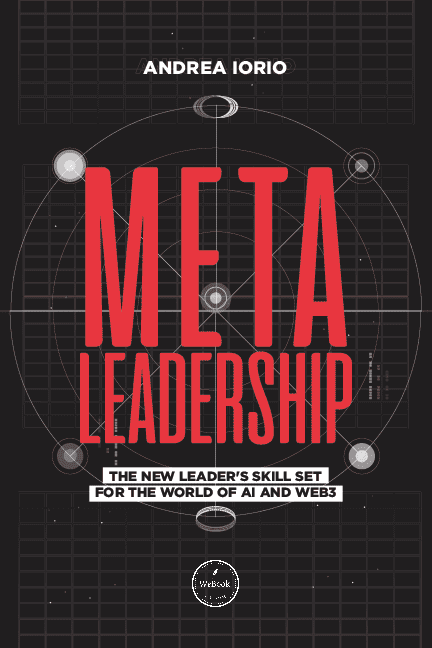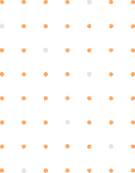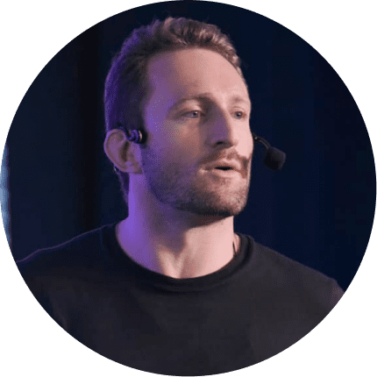As the former Director of Tinder, I got it into my head that I needed to understand more about programming. After all, I was working with an app, and I wanted to better understand how it worked, to be able to communicate with the programmers, and so on. That's how I registered for a course to learn how to code Java. It was a weekly course, on Saturdays, and it lasted for a few months. I was already working on Tinder at that time and my routine was hectic... I couldn't get any homework done or study during the week…I ended up learning almost nothing about Java.
The point I want to make here before we move any further, is that my approach to learning technology at that time was wrong. I immediately associated technology with technical knowledge, while the truth is technology can be learned in many ways - and within your moment and your expertise. The same thing happens with AI.
How can we learn and study more about AI? What are the features? What do we need to do? Why is it important? Well, that's why we will now hear a sentence from Stephen Wolfram, CEO of Wolfram Research and one of the world's great experts on computing and AI, and founder of the Mathematica program, who tells us about access to computing in the 80s, and of how the same thing should happen with AI. Just listen to the video below and don't forget to turn on YouTube subtitles.
“I think the real thing to understand about what’s happening is, which I think it’s very exciting, is the great democratization of access to computation. And I think that when you look, there’s been a long period of time when computation and the ability to figure out things with computers has been something that only the druids at some level can achieve. I myself have been involved in sort of deifying the access to computation. Back before Mathematica existed, in 1988, if you were a physicist or something like that, and you wanted to do a computation, you would find a programmer, you would delegate the computation to that programmer. Hopefully they’d come back with something useful, maybe they wouldn’t, you know there would be this long, multi week loop that you’d go through. And it was actually very interesting to see in 1988, you know, first people like physicists, mathematicians, and others, and so on, lots of people. But this very rapid transition of people realizing they themselves could actually type with their own fingers, and make some piece of code that would do a computation that they cared about. And it has been exciting to see lots of discoveries made by using that tool”.
You may wonder why Stephen Wolfram is the focal point of this discussion. Despite being relatively unknown to many, Wolfram plays a pivotal role as a thought leader in the AI domain. His commitment to democratizing access to both computing and AI is evident in his efforts to clarify the intricacies of these fields.
The truth is that I first came across him through the article he wrote “What is ChatGPT Doing…and why does it work?”, published on his website, and the best piece of content and education about Chat GPT there is .
In it, Wolfram explains that the first thing ChatGPT is always trying to do is to produce a “reasonable continuation” of any text, where by “reasonable” we can understand “what someone can be expected to write after seeing what people have written on billions of web pages, etc.”
So let’s say the text is “The best thing about AI is its ability to…XXX”. Imagine scanning billions of pages of text written by humans (say, on the web and in digitized books) and finding every instance of that text – and then seeing which word comes next in what fraction of the time. ChatGPT effectively does something like this, except it doesn't parse verbatim text; the tool looks for things that in some sense “match in meaning.” But the end result is that it produces a ranked list of words that can follow, along with “probabilities”: such as “learn” (4.5%), predict (3.5%), or do (3.2%).
The most notable thing is that when ChatGPT does something like writing an essay, what it is essentially doing is just repeatedly asking “given the text so far, what should the next word be?” - and each time adding a word.
Obviously the article goes much deeper, and goes into detail on the probabilistic models used to choose these words, but did you ever notice the simplicity and clarity with which it explains all of this?
The truth is that there are resources to understand AI better, particularly if you don't have a technical background. "Beyond Wolfram's insights, there are valuable resources for those eager to grasp AI concepts without a technical background. A notable recommendation comes from Tiago Amaral, a respected opinion leader in Web3 and AI. His compilation of 10 links to learn more about AI includes an AI course for non-technical individuals offered by Elements of AI. Contrary to common belief, you don't need a technical background to explore AI; in fact, being non-technical can provide a unique competitive advantage.
For those who follow my podcast, you know that in episode 134 we talked about "Why everyone should understand AI", and that has already become clear. The burning question now is: how can we learn more about it?
Well, I'll explain how I study it, and it all starts with the people who are behind the technology. You may have already noticed from my podcast, but when I talk about Sam Altman, Andrew Ng, Geoffrey Hinton and the other experts, you end up learning a lot about this transformative technology from the very people who help create it. And this is worth much more than any technical knowledge. Let me give you an example: I closely followed Sam Altman, CEO of Open AI, testifying in front of the American Congress, and in a very interesting way, suggesting that AI be more regulated. In his first testimony before Congress, Altman implored lawmakers to regulate artificial intelligence, as committee members demonstrated an increasing understanding of the technology. The hearing highlighted the deep discomfort felt by technologists and government about the potential harms of AI. But this discomfort did not extend to Altman, who received a friendly reception among subcommittee members.
That members of the Senate subcommittee on privacy, technology and law were not planning a difficult interrogation of Altman and this became clear when they thanked Altman for his private meetings with them and for agreeing to attend the hearing. New Jersey Democrat Cory Booker repeatedly called Altman by his first name, something not very common in these types of encounters.
Altman was joined at the hearing by Christina Montgomery, IBM's chief privacy officer, and Gary Marcus, a well-known professor and frequent critic of A.I.
Altman said his company's technology could destroy some jobs but also create new ones, and that it will be important for "the government to figure out how we want to mitigate that." Echoing an idea suggested by Dr. Marcus, he proposed creating an agency that issues licenses for the development of large-scale artificial intelligence models, safety regulations, and testing that A.I. models must go through before being released to the public.
And why is this so important? Because by following what the creators of technology say and live, we can understand the fundamentals of technology - and not just its technical aspect, but its impact on laws, regulations, politics, and people.
This helps us demystify the technology, and allow it to be used more - in parallel with simplifying its interface, obviously. Let's go back to Stephen Wolfram's example. If in the 80s you had to hire a developer to program something for you, today it's easier to do it yourself. The same thing works with video, audio or image editing: for example, I create 100% of my content from end to end, from ideation to publication, because with today's technology tools like ChatGPT and Canva I don't need a third party doing this job for me.
And this will increasingly be the case with AI: ChatGPT allowed everyone to interact with AI tools, and today we are all AI users, in some way.
Therefore, if we do not understand how it works, its limits and its impacts, we run the risk of becoming out of line with this trend (and consequently obsolete, and replaceable in the job market).









